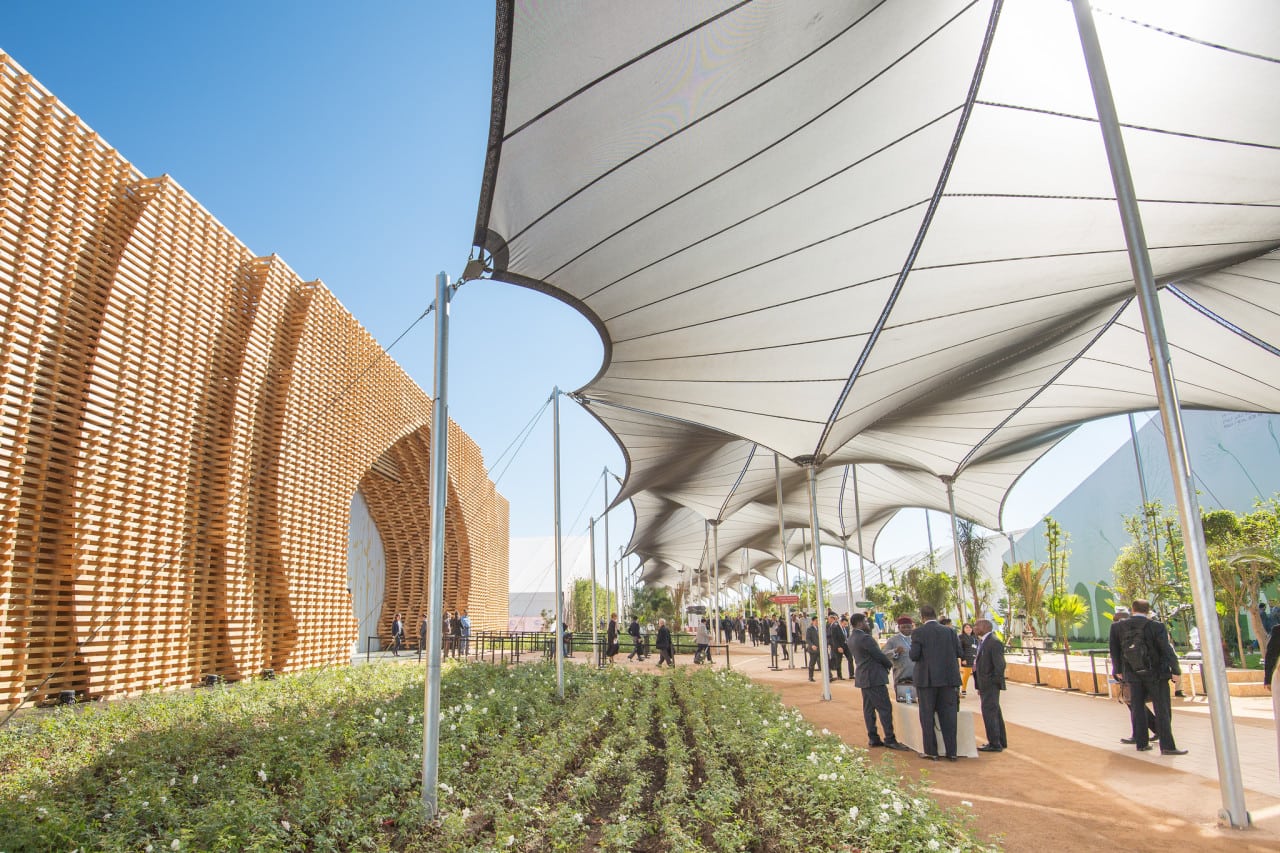
MARRAKESH, Morocco — The second and final week of the annual Conference of the Parties to the United Nations Framework Convention on Climate Change kicks off Monday, presenting parties with a chance to reflect on progress thus far. At a Saturday evening press conference here, COP22 President Salaheddine Mezouar and UNFCC Executive Secretary Patricia Espinosa praised the outcomes of the first week of the conference, noting that the Paris Agreement on climate change at the time had 105 members, nearly all of whom have submitted nationally determined contributions laying out specific commitments to fight climate change. As of press time, four more parties have joined – bringing the total to 109 states representing 76.5 percent of global greenhouse gas emissions.
The Paris Agreement, adopted at the 2015 COP in Paris, entered into force in record speed just days before COP22 began. The Moroccan presidency has dubbed COP22 as “the COP of action,” during which nations will work to determine how the agreement will be implemented. “Negotiations are going well and are exemplified by a highly inclusive and consultative process among all parties,” Mezouar said.
Negotiations are ongoing on several fronts, including efforts to flesh out the Paris Agreement rulebook and efforts to advance climate financing.
The environmental community had less praise for the progress of week one, laying out a wish list of action items for week two during a Monday morning press conference. Headlining this week is a high-level facilitative dialogue beginning Tuesday, which members of the Climate Action Network hope will result in concrete progress on a number of issues. “There are a couple of tangible ways governments this week can show that they continue to be serious: first, they can use the high-level facilitative dialogue to detail how they are going to enhance their emissions reduction actions, step up their support for adaptation, and mobilize the necessary support to assist developing countries,” Jake Schmidt, director of the Natural Resources Defense Council’s international program, said during the briefing.
Schmidt also called on nations to make clear that they are moving forward on financing for adaptation measures, as much of the climate financing being collected globally to date has been earmarked for mitigation efforts. Developed nations aim by 2020 to provide $100 billion annually for climate efforts in developing countries.
At this point, there has been no indication that any document to come out of this COP will address adaption in a more substantial manner than has occurred so far, according to Armelle Le Comte, a climate and energy advocacy officer with Oxfam. “At the moment, the current draft … fails to push for more adaptation finance,” she said. “It only restates the Paris Agreement’s commitment to achieve a balance between adaptation and mitigation.”
Also needed this week, Schmidt said, is more work on the rulebook for the Paris Agreement. “We need them to set a clear timeline for how they’re going to wrap up the decisions to finalize the rulebook for the Paris Agreement on things like transparency and things like finance,” he said.
The rulebook will determine how nations report their efforts on adaptation, finance, capacity building, and other fronts; how national efforts are reviewed under agreement; and how compliance will be promoted. The rulebook will likely not be adopted until a future COP.